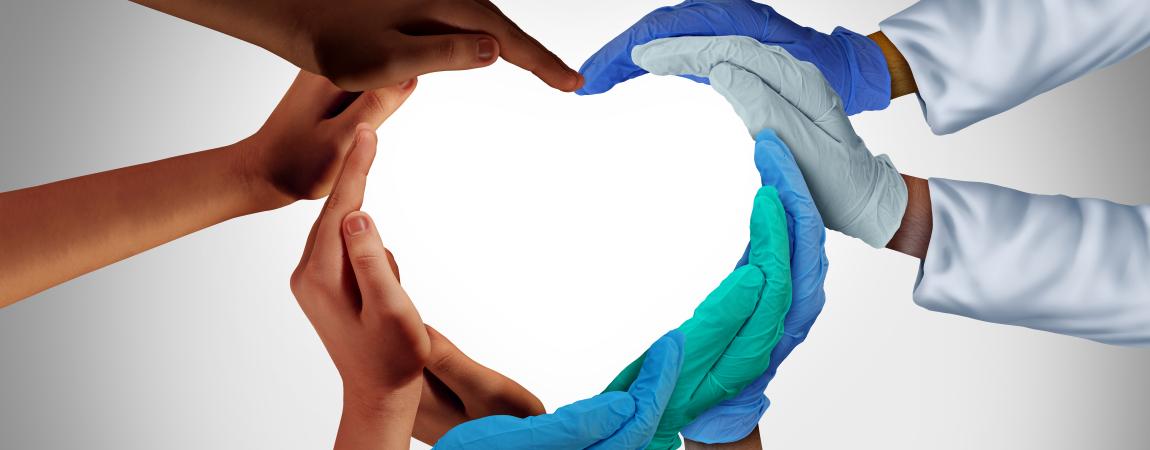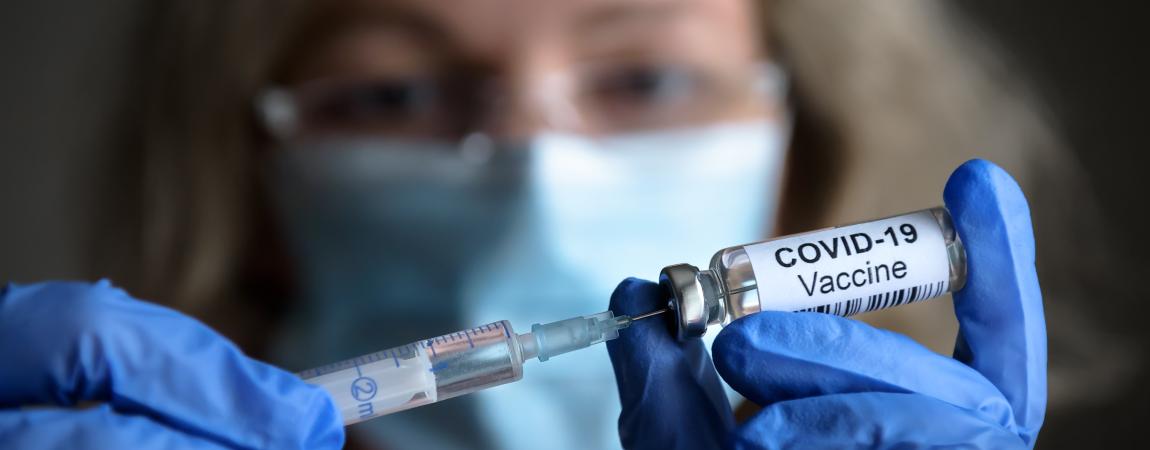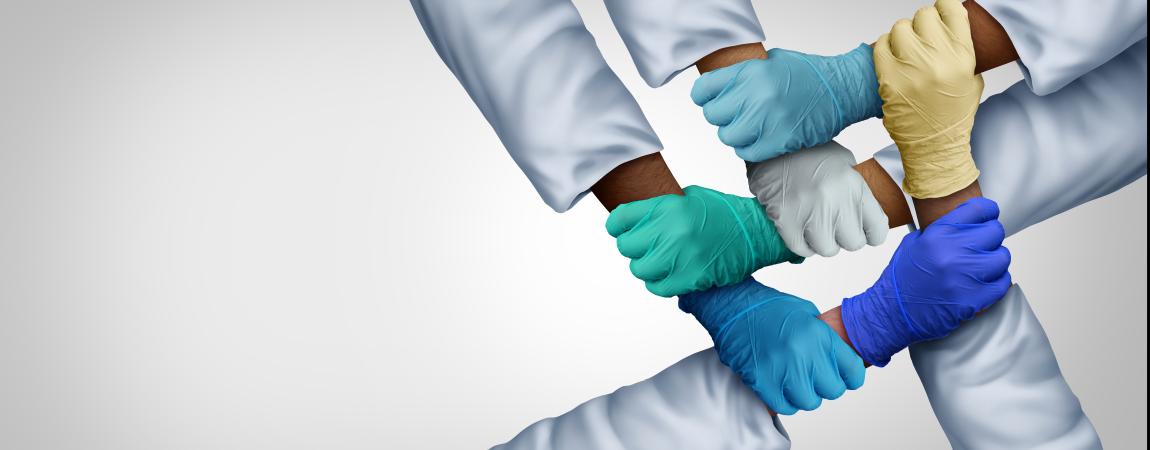AACIHC is Awarded the COVID-19 Health Disparities Grant!
In late 2020 the Arizona Advisory Council on Indian Health Care (AACIHC) was awarded a portion of the COVID-19 Health Disparities Grant by the Arizona Department of Health Services (ADHS). This grant is a part of a $2.25 billion national initiative, funded through the US Department of Health and Human Services and the Coronavirus Response and Relief Supplemental Appropriations Act of 2021.
The AACIHC is using the grant to help reduce health disparities amongst Tribes and tribal communities during both the current COVID-19 pandemic and during any future pandemics, by providing informational resources for Tribes and tribal communities and by establishing a Tribal Pandemic Coalition. Under the COVID-19 Health Disparities Grant, the AACIHC team shall:
- Create new mitigation and prevention resources to mitigate the spread of COVID-19 by developing Tribal culturally relevant informational flyers, templates and videos on pandemic preparedness. A Tribal Pandemic Toolkit shall also be developed to act as a central, online repository of information. This will allow community leaders, healthcare providers, and community members the ability to access these anywhere where there is an internet connection. (Tribal Pandemic Toolkit); and
- Seek to improve data collection and reporting amongst Tribal populations by identifying best practices/models of data collection, and by designing data collection methodology guides for pandemic reporting; and
- Work with Tribes and tribal communities to identify best practices and Tribal policies that were successfully used to mitigate the COVID-19 pandemic, and that would have applicability for future pandemics; and
- Shall coordinate a Statewide Tribal COVID-19 Coalition that can meet on a regular basis to share best practices, and that can exist beyond the length of the grant, so as to serve as a collective resource for Tribes in Arizona to coordinate in the event of a future pandemic; and
- Shall conduct conferences, forums, and training events to share information that promotes infrastructure development, along with covering a host of topics identified by Tribes and tribal communities as being useful information for mitigating the COVID-19 pandemic and future pandemics.



| Title | Meeting Date | Agenda | Minutes | Other |
|---|---|---|---|---|
| Tribal Pandemic Coalition - October 18, 2022 | to | Agenda | ||
| Tribal Pandemic Coalition - August 23, 2022 | to | Agenda | Other Attachments | |
| Tribal Pandemic Coalition - Spring 2022 | to |
The AACIHC has 3 Central Goals for the Grant:
- Expand existing and to develop new mitigation and prevention resources to reduce COVID-19 disparities;
- Increase and improve data collection and reporting amongst populations experiencing a disproportionate burden of COVID-19 infections, severe illness, and deaths; and
- Build, leverage and expand infrastructure supports for COVID-19 prevention and control.
To accomplish these goals, the AACIHC plans to:
- Establish a statewide Tribal Pandemic Coalition (TPC) of volunteer members, who will meet quarterly to identify:
- Needs of the Tribes and tribal communities in the current pandemic;
- Best practices when it comes to pandemic policies, isolation/quarantine guidelines, available resources (i.e. training materials for both community members and healthcare workers), infrastructure set ups (i.e. testing and vaccination clinics, Alternate Care Sites, and COVID-19 isolation hotels), communication strategies pertaining to public health, along with other culturally relevant materials that have proven beneficial; and
- Barriers that were encountered, along with what solutions were successful, and (if no solution proved adequate) seek to find solutions for if the issue is encountered in the future; and
- Opportunities for Tribes and tribal communities in mitigating both the current COVID-19 pandemic and potential future pandemics.
- Hold Forums and Trainings on identified topics of interest, as identified and/or requested by the Tribes, tribal communities, the Tribal Pandemic Coalition, and the AACIHC.
- Forums shall be held at least quarterly and open to anyone who wishes to attend. The forums will provide an overview of all the new materials, resources, and information that the AACIHC and the Tribal Pandemic Coalition have gathered, and make sure that all attendees know where this information is located. The forums will also be a great way for tribal community members and providers to engage and let the AACIHC know what types of pandemic trainings and pandemic resource materials would be helpful to them.
- Trainings that are more specific to centralized topic identified by the Tribes and tribal communities shall be held as often as requested and needed. Additional trainings shall be posted online and will be accessible 24/7, 365 days a year.
- Create a Pandemic Resource Toolbox, that will be housed on the Arizona Advisory Council on Indian Health Care’s website (https://aacihc.az.gov/) and shall include a plethora of culturally relevant information aimed at assisting Tribes and tribal communities in the ongoing pandemic, so that it can act as a ‘central location/repository’ of materials needed for future pandemics. It will include items such as:
- Online and printable educational materials, such as flyers, PowerPoints, PDFs, templates and videos for both community members and providers;
- Guides to best practices for contact tracing, data collection, and reporting;
- Pandemic policies, procedures, and quarantine guidelines established by tribal communities;
- Public health models;
- Data regarding social determinants and other identified factors contributing to and/or exacerbating illness outcomes;
- Infrastructure materials, such as how to establish an Alternate Care Site; and
- Training modules for both the community and providers.
- Help Tribes and tribal communities with pandemic related activities in real time as requested.
- Hold a Health Disparities Summit. The Summit will be a final wrap up, where all information and resources that have been compiled, gathered, and/or created by the team and Tribal Pandemic Coalition is presented and given back to the Tribes and tribal communities. The Health Disparities Summit will include information on social determinants of health, and will be between 1-3 days in length.
Tribal Pandemic Coalition
The AACIHC is actively recruiting partners for a statewide COVID-19 Tribal Pandemic Coalition (TPC), to aid in both the ongoing pandemic, and to plan for any future potential pandemics.
The TPC’s goal is to reduce health disparities experienced during pandemics amongst American Indians in Arizona. It hopes to accomplish this by gathering a collection of key individuals and community members together to openly discuss past and current needs of Tribes and tribal communities during the COVID-19 pandemic, best practices, what barriers were encountered, how solutions were found, and what solutions were the most effective.
The TPC will have the opportunity to participate in the development of a pandemic toolkit, which shall be an online repository of culturally relevant resources (i.e. CBETs, trainings, PowerPoints, fliers, public health models, data collection methodologies, etc.) geared specifically towards requests received from Tribes and tribal communities.
The TPC will ideally have volunteer representation from all 22 Tribes in Arizona, including representatives from IHS/638 facilities and clinics, behavioral health providers, health plans, and other key State organizations.
For more information, or if you or anyone from your Tribe, tribal community, or organization is interested in joining the Tribal Pandemic Coalition, please contact Alison Lovell, COVID-19 Health Disparities Grants Manager at: [email protected]
Meetings have been held in May of 2022 and August of 2022. The next meeting is scheduled for Tuesday, October 18th, 2022 at the Twin Arrows Casino, with both in-person and hybrid options. To attend please rsvp to Alison Lovell at [email protected], and she will send you the information for the registration (if attending virtual) or the invite (for in person), along with the agenda.
We look forward to the opportunity to collaborate and work together for a future with fewer health disparities.
